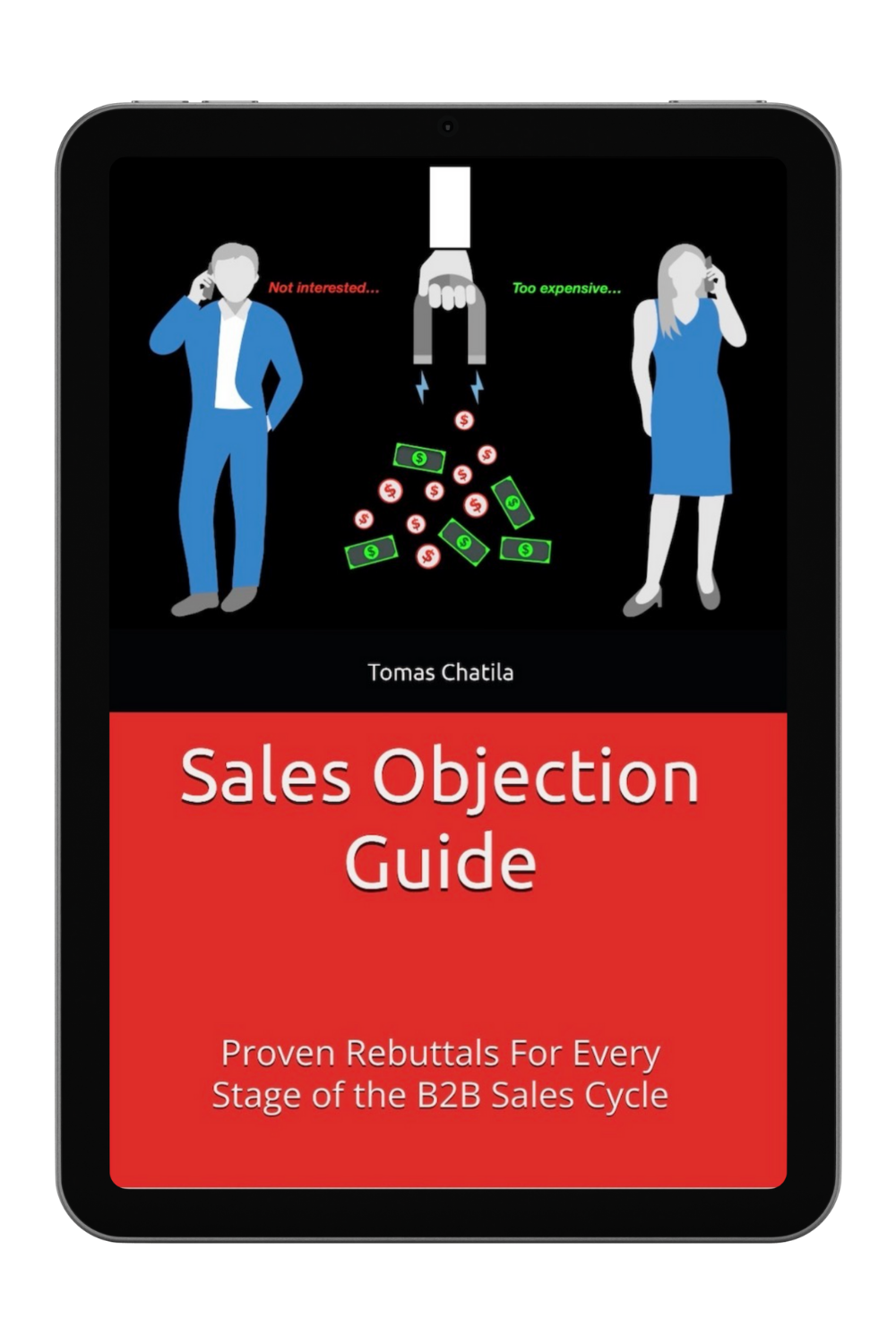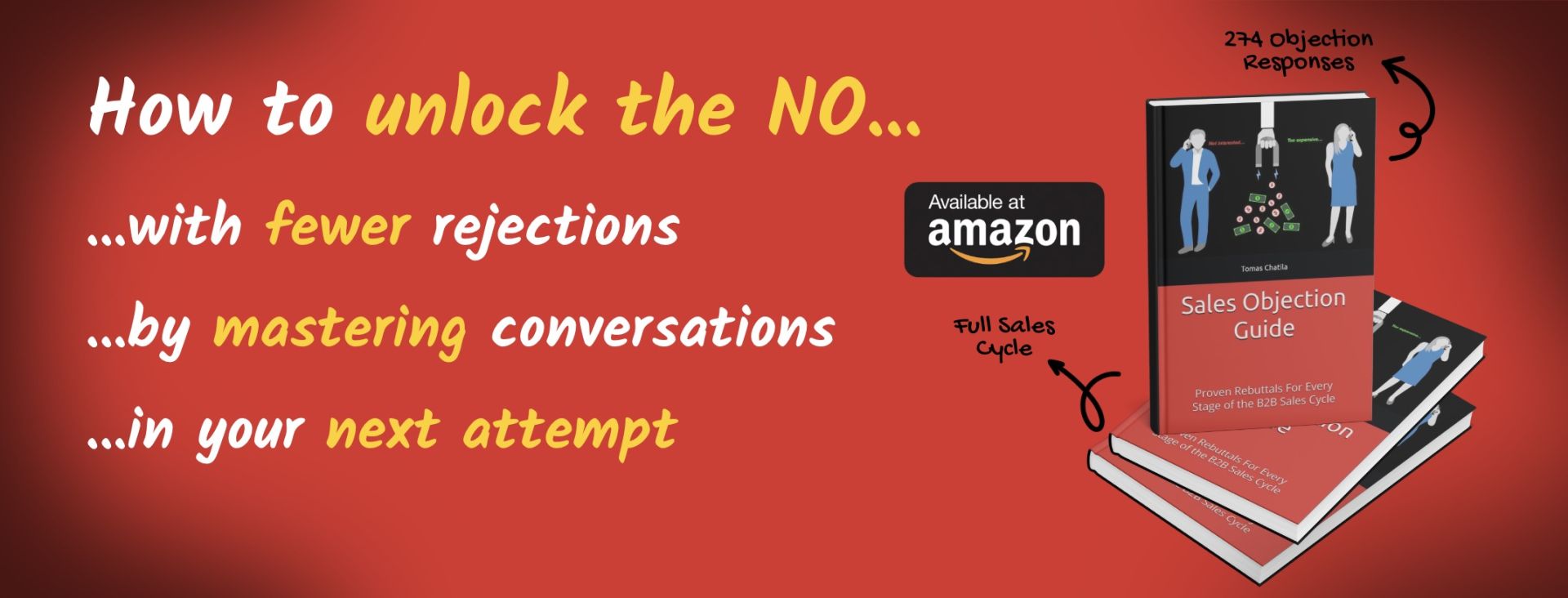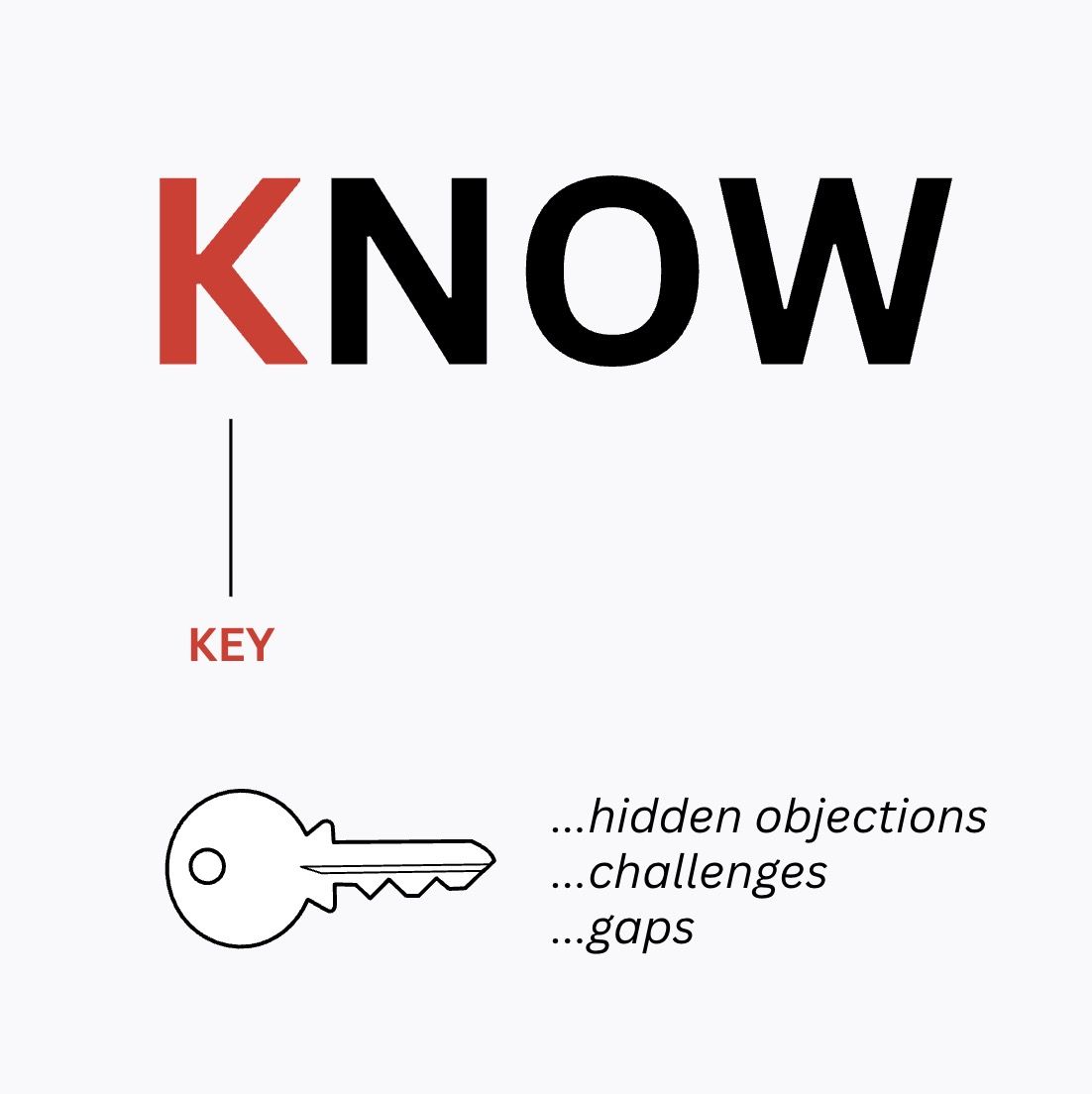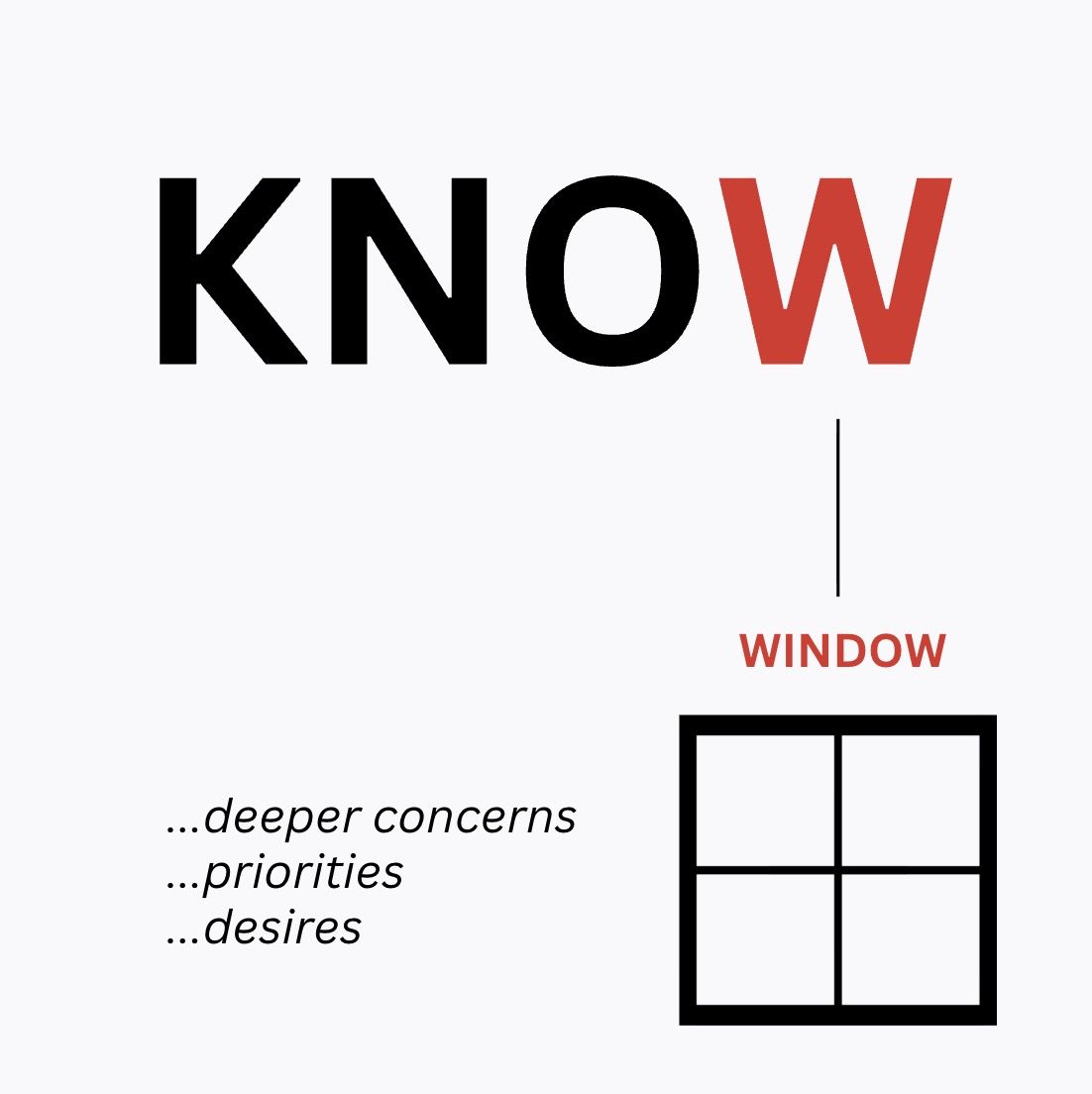You have a choice. A true sales professional understands that a prospect's "no" is never about what it seems. It's a signal for an unspoken opportunity. And it’s your chance to use a system that wins.
They say: "Just send me an email."
They mean: "I am done with this conversation. Please go away."
When someone says, "Just send me an email," they are establishing boundaries. They want to disengage from what they perceive as an unnecessary exchange.
It’s a defense mechanism. By telling you to simply send an email, they attempt to regain control of the situation. This is not a sign of interest but rather a subtle pushback.
Wrong response: "Okay, what's your email?" This approach is fundamentally flawed. It demonstrates compliance and capitulation, thus reinforcing their desire to distance themselves from the conversation.
Here's the
Agree, Reframe, Confirm, Close process to turn the situation back in your favor.
- Agree: "Absolutely Sir/Ma'am."
- Reframe: "What's the best email to send the material to?"
- Confirm: “Absolutely, and would x or y use case be most relevant to you?”
- Close: "Fantastic, I’ll have this shared right away."
They say: "I'm not ready to commit."
They mean: "I'm scared of making a bad decision."
This is not a budget issue. It’s a trust issue. The prospect is wrestling with their fear of making an irreversible choice. They’re worried about the consequences of their decision.
When someone hesitates to commit, it's crucial to understand the underlying psychology. They aren't just weighing costs; they are battling anxiety, uncertainty, and doubts that could derail their path to success.
Wrong response: "Okay, let me know when you're ready," shows a lack of engagement, a miss on the opportunity to address their fears head-on. This type of passive response will get you nowhere. It will leave them feeling justified in their hesitation. That’s the last thing you want.
- Agree: "Absolutely Sir/Ma'am."
- Reframe: Most clients weren’t ready to commit."
- Close: "What are your expectations of me to ensure you receive everything to succeed?"
This question is tactical and strategic. It puts the ball back in their court, prompting them to articulate their needs. This not only engages them but also shifts their focus from fear to clarity. You’re steering the conversation toward solutions and outcomes rather than lingering on uncertainty.
They say: "Call me back after the holidays."
They mean: "I want you to forget about me."
When a potential client says, "Call me back after the holidays," they are not expressing genuine interest in postponing the conversation. Instead, they are employing a stall tactic designed to push you out of their calendar and, ultimately, out of their mind.
This is a strategic move that indicates a desire to avoid commitment and puts you on the back burner. Understanding this psychology is crucial for overcoming the objection.
Wrong response: "Okay, I'll call you back then."
Correct response: You use the Agree, Reframe, Close process:
- Agree: "Absolutely Sir/Ma'am. Linda, it sounds like it's very busy over there. Is it the XYZ holiday that’s happening in a few days?"
- Reframe: "I want to make sure I speak with John before he leaves for the holidays. This is very important."
- Close: You secure the next step now to beat the stall.
They say: "Let's delay to next quarter."
They mean: "I don't see the urgency. I'm hoping this problem will solve itself."
What they’re really expressing is an underlying belief that the value of addressing the issue at hand isn’t compelling enough to act now. They are signaling a lack of urgency, believing that time will somehow resolve their challenges without intervention.
They might feel pressure to prioritize other tasks or investments, or perhaps they fear commitment and want to avoid making a decision. But the truth is, ignoring the issue often leads to exacerbation. Problems don’t self-resolve; they evolve into larger obstacles.
Wrong response: "Okay, great. I'll check back with you in a few months."
Correct response: You create urgency by using the Agree, Reframe, Close process:
- Agree: "Absolutely Sir/Ma'am."
- Reframe: "I won't have the same offer to give you next quarter since pricing will be different then. The best deal you will get on this solution is on the table right now."
- Close: "If we wait until next quarter, the price will go up by XYZ amount. I need your signature on pages X, Y, and Z."
They say: "Why did you call me?"
They mean: "You're interrupting my day, and you have 5 seconds to justify this call."
When someone asks why you called, they are signaling that your presence is unwelcome. They feel their time is being wasted. This is an instinctive reaction; often people are inundated with calls and solicitations.
Their defenses go up. You must recognize that they are not rejecting you personally; they are simply asserting control over their time and environment. In this scenario, if you falter, if you show hesitation, or if you appear apologetic, you've lost their attention.
Wrong response: "Oh, I'm sorry to bother you."
Correct response: You use the Agree, Reframe, Meeting process:
- Agree: "Absolutely Sir/Ma'am."
- Reframe: "The reason for the call is to schedule a Teams meeting this afternoon."
- Meeting: "Is your 2 pm available today?"
Why Mastering Objections Matters:







